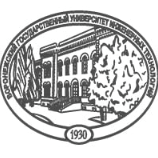Introduction to Voronezh State University of Engineering Technology
Voronezh State University of Engineering Technology is a long-established higher education institution in Russia, focusing on training highly skilled professionals in the fields of food, chemical engineering, etc., and providing a wide range of courses for foreign students.
Overview
Student size: There are about 4,770 students, including 457 international students.
Faculty: There are 288 faculty members, of which 1% are international faculty members.
History
The school was founded on June 3, 1930. Its predecessor was the Technical Department of the Voronezh Agricultural College, which was later transformed into the Voronezh Institute of Trade and Food Industry of the Russian Soviet Federative Socialist Republic. At that time, it had three departments: machinery, technology, planning and economy, aiming to train engineers for the starch, sugar, fermentation and alcohol industries. In 1932, it was renamed the Voronezh Institute of Chemical Technology. It was partially bombed by the German army during World War II. In 1942, it was urgently evacuated to the city of Bisk in the Altai region. In 1944, it returned to Voronezh. The restoration of academic buildings continued until the early 1950s. In 1950 In 1994, it was affiliated to the Leningrad Institute of Food Industry Technology, and in 1959 it was transferred to Voronezh and renamed the Voronezh Institute of Technology. Since then, the number of departments, students and professors has continued to increase. In 1994, it was renamed the Voronezh State Institute of Technology. In 1995, the Department of Humanities Education and Training began to operate. In 1998, the labor organization, marketing activities, applied mathematics and economic mathematical methods were established. In 2011, it was renamed the Voronezh State University of Engineering and Technology.
School Strength
Teaching Achievements: The school has trained a large number of professional talents. Since its establishment, about 47,000 students have graduated, including 4,000 foreign students.
Research Strength: The school conducts research activities in many fields, such as food processing technology, biotechnology, information systems and technology, environmental protection, etc., and cooperates with local enterprises and institutions to promote the transformation and application of scientific research results.
International Cooperation: Actively carry out international exchanges and cooperation, establish cooperative relations with many foreign universities, carry out student exchanges, teacher exchanges, scientific research cooperation and other projects, and some international activities include exchange student projects, overseas internships and inviting foreign students.
Institutional Nature
Public University.
Educational Philosophy
Focus on cultivating students' practical ability and innovative spirit, and is committed to providing students with high-quality education and training, so that students have solid professional knowledge and skills to adapt to the needs of social and economic development, and lay a solid foundation for students' career development and personal growth.
Key Laboratories and Disciplines
Key Laboratories: The school has multiple professional laboratories, which provide students and teachers with good scientific research and practice conditions, but the specific key laboratory information has not been clearly found.
Key disciplines: Food processing technology, biotechnology, bioinformatics, information systems and technology, chemical technology, environmental protection and sustainable use of natural resources, economics, management, etc. are the key disciplines of the school.
Departments
The school has the following departments:
Technology Department
Food Machinery and Equipment Department
Technology System Control and Information Technology Department
Ecology and Chemical Technology Department
Economics and Management Department
Ranking
Ranked 401-450 in the 2022 EECA University Ranking.
Ranked 8945th in the global ranking of GoToUniversity, 2124th in Europe, and 288th in Russia.
Ranked 301-350 in the QS Emerging Europe and Central Asia Ranking.
Expenses
Tuition fees: The minimum tuition fee for undergraduate courses for foreign students is US$607 per year, and the tuition fees for different majors are different. For example, the annual tuition fee for undergraduates in computer science, mechanical engineering, chemical engineering, etc. is 120,000 rubles, and the annual tuition fee for masters is 150,000 rubles. Rubles, the annual tuition fee for PhD students is 180,000 rubles.
Other expenses: accommodation, transportation, study materials, meals and personal expenses need to be considered.
Campus
Teaching facilities: The campus is located in the center of Voronezh and has three large teaching buildings. The school's library provides students with a wealth of learning resources, making it convenient for students to do homework and write scientific papers.
Living facilities: The school has two modern dormitories for students to live in. The dormitory room types include double rooms, and single rooms can also be selected for an additional fee. The dormitory is connected to the school by subway, and it usually takes about 25 minutes to reach the school.
-

Peter the Great St.Petersburg Polytechnic University
-
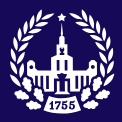
Moscow State University M. V. Lomonosov
-

Bauman Moscow State Technical University
-
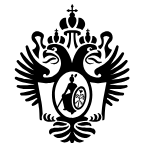
St. Petersburg State University
-

Tomsk State University
-

Peoples' Friendship University of Russia
-

Don State Technical University
-
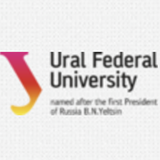
Ural Federal University
-

Moscow Institute of Physics and Technology
-
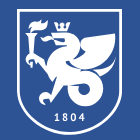
Kazan Federal University
-

Mesoamerican University
-

Istmo University
-

Mariano Galvez University of Guatemala
-

Regional University of Guatemala
-

Galileo University
-

Francisco Marroquín University
-

Rafael Landívar University
-

University of the Valley of Guatemala
-

University of San Carlos of Guatemala
-

Technological Institute of Tlaxcala Plateau
-

Golfo University
-

Technological University of South Sonora
-

Technological University of Huejotzingo
-

Tizimín Institute of Technology
-

Chilpancingo Institute of Technology

